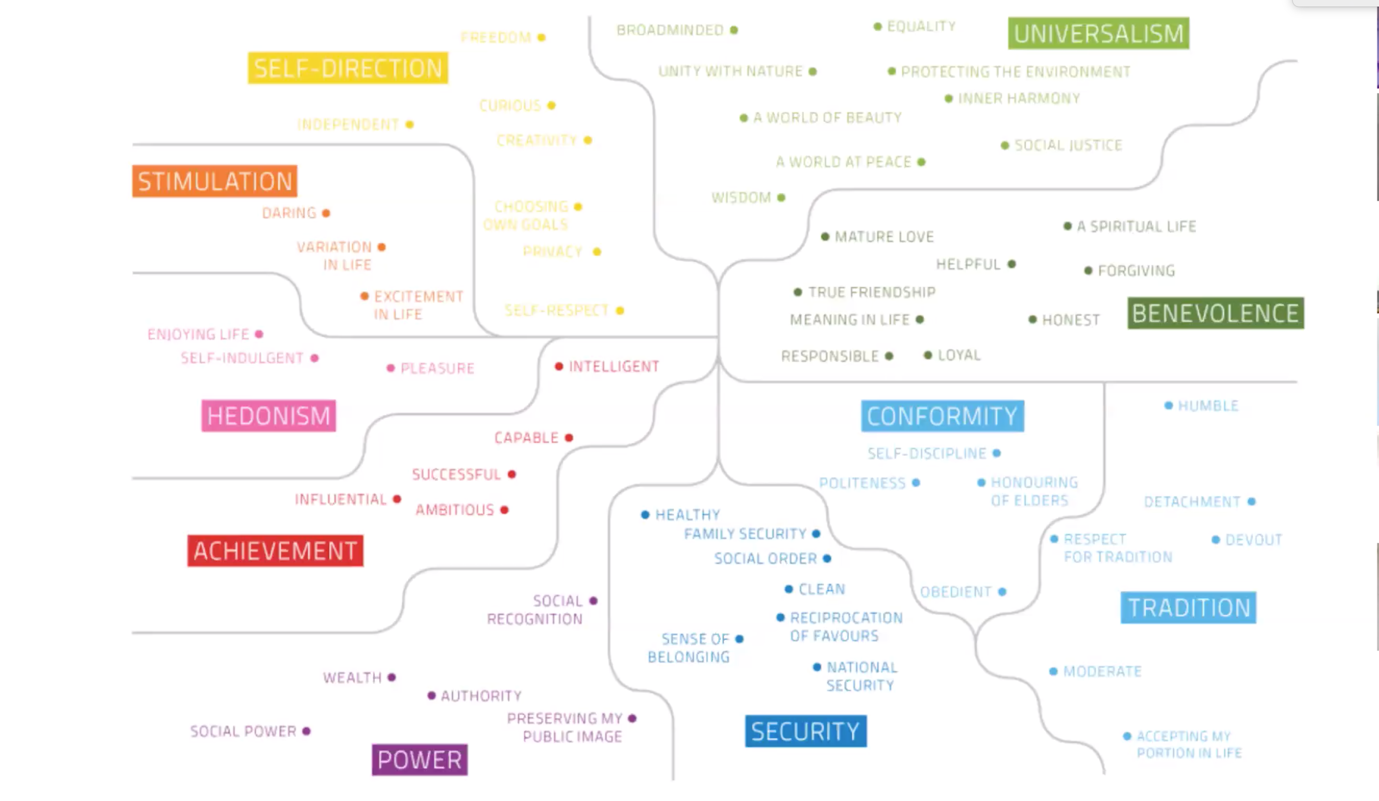Note from Changing the Narrative Cell 3
Summary of key points
Neoliberalism had been founded on a narrative based around values and a values-based approach would be needed to counteract it.
We should be more confident in appealing to the values of benevolence and universalism and should not try and adjust our messages to people’s different values.
Our narrative needed to be a dialogue with the public and different groups with it, authentically connecting with them and highlight authentic experiences and voices.
In more detail
Steve Wyler, Co-convenor of a Better Way, began by recapping on some of the main points from previous meetings:
The current national narrative can ‘other’ people and portray them as part of the problem, and organisations which seek to help them can inadvertently do this too.
Creating platforms for authentic voices who frame their own story can help disrupt existing narratives and shift power, and organisations can help by linking these stories to systemic issues and solutions as well as individual stories.
The new narrative we’d like to create will portray people as part of the solution, not the problem and, as part of this, we need to tell a different story of responsibility to each other, mutual obligation and caring for each other, as well as highlight the need for systemic change. This needs to appeal to people of different political persuasions if it is to take hold.
He said that the topic of today’s discussion was ‘How do we bring about change’ and introduced our speaker, Tom Crompton, from the Common Cause Foundation, to talk about the role of values in achieving change.
Tom said that they had created a model of values, drawing on academic work in social psychology and surveys where they had asked people in a hundred countries what they valued in life. Clear patterns emerged that have strong predictive value, as shown in the ‘map’ below; and the values had been used successfully in communications to influence people to support environmental causes.
These values tend to cluster, with people associating with those adjacent in the map to the one they most identify with. But they are not static and in practice everyone shares all the values to some degree or other.
Conventional communications wisdom is that you should ‘speak the language’ of those you want to influence and segment audiences with different messages for each. But the lesson from their work is that if you draw attention to one value it tends to elevate the recipients attachment to that value. Experiments have clearly demonstrated a short-term effect but there is probably also a longer term one which has not yet been measured.
So, for example, it is better not to stress economic arguments in relation to the environment or disability issues, even for those who most naturally associate with that value, and more advantageous to use values of universalism and benevolence.
They had also found that an appeal to people’s values cuts through better than campaigns that focus on the head.
He noted that it was common to build out from the values of benevolence to reinforce values around conformity and tradition, with a short step to security, and far less common to build out from benevolence to universalism. In thinking about shifting the narrative, we could do more of that and with greater confidence.
In breakout groups and the subsequent discussion the following points were made:
The map was useful to understand what was happening, and we agreed that it was good to speak the language of values, but people in the group wanted to avoid being manipulative. We were not engaged in marketing.
Sometimes members of the group had found it useful to appeal to the values of different parts of the map, for example, arguments around the economic and personal advantages of equality strategies had gained traction and led to policy change.
Using values could help people to engage in a conversation to bring about change. It was important to recognise that the polarisation of left and right did not necessarily reflect people’s values and that people had more values in common than we tend to think.
Neo-liberalism had been very successful in establishing a narrative based around values on the lower left-hand side of the map and a shift in that narrative also needed to be values based, starting from a different point.
A radical new narrative was needed focusing on universalism and benevolence and emphasising responsibility, enabling self-direction.
Our narrative needed to be a dialogue. One-to-one conversation between people can be the foundation to move into a new more relational narrative space.
It was important to tell authentic stories and to listen to the public and what matters to them. This tended to be things like home, family, place and where they work.
This dialogue is not the same as focus group politics. Radical listening skills are required, and discussions with a wide range of people, allowing their agendas to come to the surface, with sufficient trust to allow challenge and criticism to be expressed.

